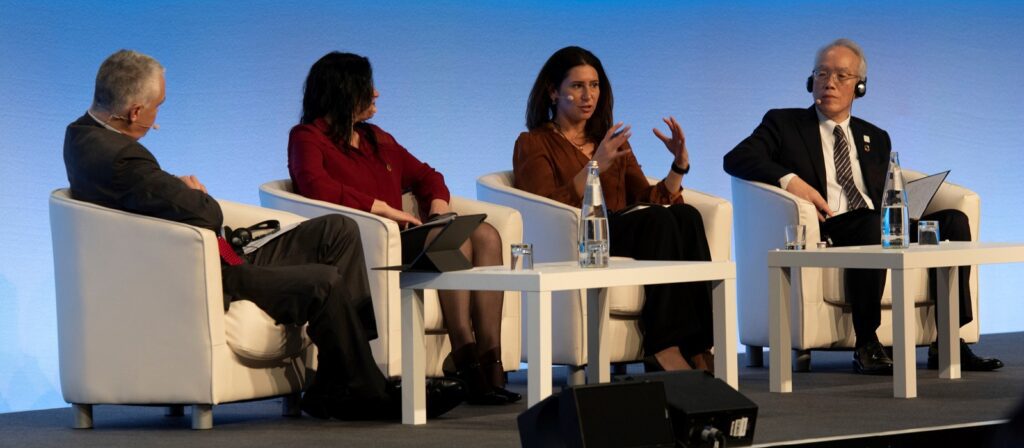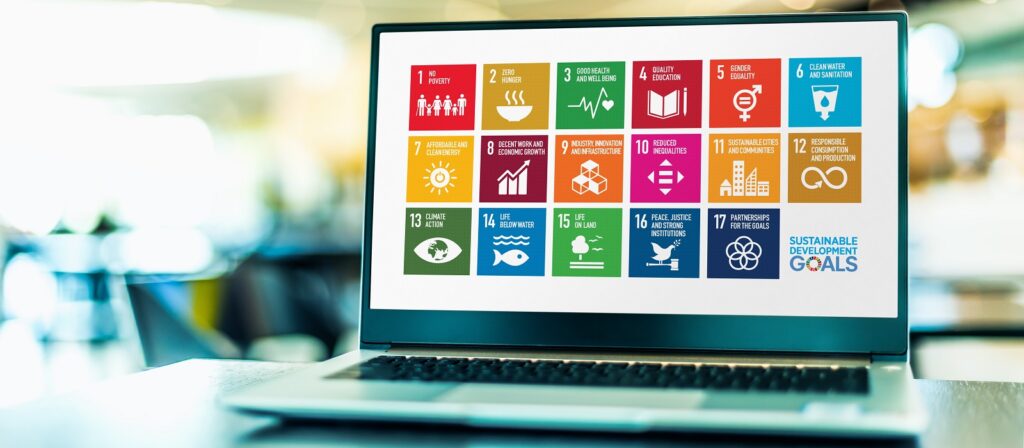The ICMIF-calibrated SDG Calculator is a tool that measures the impact insurance has on achieving the UN Sustainable Development Goals (SDGs). The calculator has been co-developed with ICMIF, Swiss Re and ICMIF members across the world.
The purpose of the calculator is to help future-proof the insurance industry by quantifying the impact of insurance on the SDGs. By doing so, insurance companies can optimise their portfolios, enhance their performance, manage their exposures, predict and manage accumulation, comply with growing regulations, and meet growing stakeholder expectations. The calculator is also intended to help drive underwriting decisions to address the many different aspects of sustainability that are already on the Board agendas and strategic client meetings of insurance companies.
The development of the Insurance SDG calculator is part of the shift from ESG criteria, which measures what a company does, to the SDGs, which measures the impact a company has. This shift required a framework for insurers that would take the UN SDGs; translate them for insurance, including the metrics that insurance can influence; and from there, help to start measuring underwriting and operational impact.
The iSDG (Insurance SDG) initiative aims to systematically map the links between insurance products and services and the SDGs, find frameworks for impact measurement, and eventually find ways for the industry to move towards those targets. The calculator is a crucial part of this initiative as it provides the necessary quantification engine to measure the industry’s impact.
To set the calibration, organisations worked together to set the commitment frameworks, which are subjective aspects that help set the scale for comparison. These frameworks help to set the standards for insurance to measure its impact. Through the development of the calculator, the industry can begin to address the many different aspects of sustainability and move towards achieving the SDGs.
The SDG scores are being seen as a business opportunity by the ICMIF Board and leaders, as insurers will have to be more aware of the SDGs and their impact on business. The underwriting side of things is more complicated to work on, but the investment side is will be integrated when completed through the UN Net-Zero Asset Owner Alliance.
The SDG model is a voluntary addition to what is reported back to members and stakeholders, but it will likely become a guideline for the industry in two years’ time through the UNEP FI Principles for Sustainable Insurance (PSI) group, which will look very similar to the model Swiss Re is behind. This model is calibrated for mutual insurers, but estimates that around 80-90% of the questions will be the same for the rest of the industry. This initiative can help set sustainability strategies going forward and is a business opportunity that helps drive the whole of the ICMIF membership towards helping with the 2030 Agenda and creating better global citizens.





